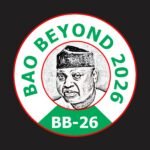
The Federal Government wants Nigerians to know that massive conversion of petrol-driven cars to Compressed Natural Gas (CNG) cars would crash the prices of transportation, food, and consequently slow down inflation.
Nigeria’s headline inflation rate increased to 33.69 per cent in April 2024 up from 33.20 per cent recorded in March 2024, the National Bureau of Statistics said.
But Special Adviser to President Bola Tinubu on information and Strategy, Bayo Onanuga said, “tests had been conducted to show that natural gas is 60 percent cheaper than petrol, and if CNG is used to fuel vehicles, it would have a consequent impact on the prices of food and overall cost of production.”
He said this at the first South West Stakeholders Meeting on the CNG Initiative in Lagos.
Already, Onanuga said, “Some major companies were resorting to cheaper alternatives like CNG to generate power too.”
Aligning with Onanuga’s remarks, the Programme Director and Chief Executive of the Presidential Compressed Natural Gas Initiative, Engr Michael Oluwagbemi stated that “CNG was a much cheaper alternative to fuel due to its local availability.”
“Transportation is fundamental to any country’s growth and development. If you’re able to provide transportation at lower costs, then people would have money to spend on other areas of their lives,” Oluwagbemi said.
He also offered assurances, “Natural Gas vehicles are safer and cheaper, and they will have a positive impact on the automotive industry in Nigeria.”
Confirming the establishment of 50 CNG refuel stations, he said more stations would spring up soon, propelled further by the directive of the Federal Government to Marketers to include CNg in retail stations nationwide.
The Stakeholders engagement, the first in a series of pre-launch activities, was attended by the Minister of State for Labour, Nkeiruka Onyejeocha, Commissioner of Transport in Lagos, Oluwaseun Osiyemi, his Ogun Counterpart, as well as major players in the automotive, transportation, and environment sectors.







